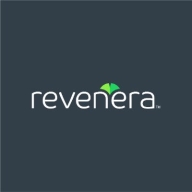

Find out what your peers are saying about Black Duck, Snyk, Veracode and others in Software Composition Analysis (SCA).
| Product | Market Share (%) |
|---|---|
| FOSSA | 3.1% |
| FlexNet Code Insight | 1.3% |
| Other | 95.6% |
| Company Size | Count |
|---|---|
| Small Business | 5 |
| Midsize Enterprise | 1 |
| Large Enterprise | 8 |
FlexNet Code Insight is a single integrated solution for open source license compliance and security. Find vulnerabilities and remediate associated risk, while you build your products and during their lifecycle. Manage open source license compliance. And add automation to your processes and implement a formal OSS strategy and policy that balances business benefits and risk management.
We monitor all Software Composition Analysis (SCA) reviews to prevent fraudulent reviews and keep review quality high. We do not post reviews by company employees or direct competitors. We validate each review for authenticity via cross-reference with LinkedIn, and personal follow-up with the reviewer when necessary.